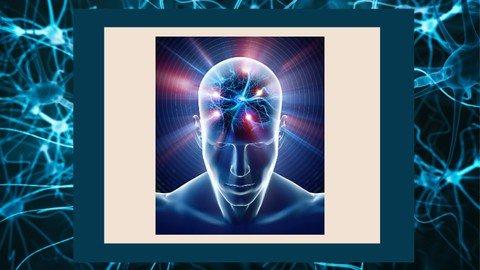Most Commented
Trauma Healing Practitioner | Level Two Accredited Program




Description material

Published 9/2023
MP4 | Video: h264, 1280x720 | Audio: AAC, 44.1 KHz
Language: English | Size: 2.44 GB | Duration: 2h 30m
Unlocking Deeper Healing: Advanced Techniques & Insights for Trauma Care
What you'll learn
Neurological Insights: Acquire advanced knowledge on brain trauma responses, neuroplasticity's role, and autonomic system healing mechanisms.
Complex Trauma Skills: Grasp, identify, and manage diverse complex traumas, ensuring a holistic and effective therapeutic approach.
Therapeutic Expertise: Master advanced therapeutic tools, from somatic methods to trauma-informed mindfulness, expanding healing capabilities.
Ethical Awareness: Deepen professional ethics understanding, set clear boundaries, and address challenges with utmost sensitivity in trauma work.
Requirements
Level One Completion: Learners should have successfully completed the Level One Trauma Healing Practitioner Course or possess an equivalent foundational understanding of trauma healing.
Basic Counseling Skills: Familiarity with basic therapeutic communication techniques such as active listening, empathy, and open-ended questioning.
Secure Internet Connection & Device: A stable internet connection and a computer or tablet for accessing course materials, participating in online discussions, and viewing multimedia content.
Openness to Self-Reflection: A willingness to engage in personal reflection and introspection, as understanding oneself is crucial to helping others effectively.
Reading Materials: Access to recommended reading materials, either purchased or borrowed, to deepen understanding and enhance learning.
Safe Space: A quiet, confidential environment to engage in course exercises, especially for any practice or role-playing sessions.
Description
Advance your journey in the profound realm of trauma healing with our Level Two Accredited Course. This comprehensive module is meticulously designed for those ready to delve into trauma healing's deeper complexities.What You'll Learn:Advanced neurological insights into trauma responses and the transformative potential of neuroplasticity.Mastery over identifying and managing diverse complex traumas.Expertise in leading-edge therapeutic tools, from somatic methodologies to trauma-informed mindfulness.Ethical proficiency, ensuring sensitive and integrative trauma care.Prerequisites:Level One completion or equivalent foundational understanding.Basic therapeutic communication skills.Secure internet connection and a device.A willingness for introspective self-reflection.Access to reading materials.A confidential environment for exercises and practice.Who This Course is For:Intermediate trauma healing practitioners.Mental health professionals.Passionate learners on trauma healing journeys.Support workers, first responders, legal professionals, HR personnel, spiritual and community leaders, and art therapists.Educators, coaches, and anyone keen on understanding trauma's intricate narratives.*Recieve Course Book Upon Enrollment*Upon course completion, be ready to immerse in a transformative realm, armed with knowledge and techniques that promise to make a profound difference in the lives of trauma survivors. Whether refining professional expertise or fuelling personal passion, this course will be your touchstone in trauma care. Congratulations in advance on this pivotal step in your journey!
Overview
Section 1: Introduction
Lecture 1 Introduction
Lecture 2 Chapter One - Introduction
Section 2: Trauma Healing Practitioner | Level Two
Lecture 3 Chapter 2: Advanced Neurobiology of Trauma
Lecture 4 Chapter 3: The Extended Trauma Spectrum
Lecture 5 Chapter 4: Dissociative Phenomena and Trauma
Lecture 6 Chapter 5: Advanced Somatic Techniques
Lecture 7 Body Scan For Daily Practice | Increase Somatic Awareness
Lecture 8 Chapter 6: The Role of Attachment in Trauma Healing
Lecture 9 Chapter 7: The Intersectionality of Trauma
Section 3: Trauma Healing Practitioner | Part Three
Lecture 10 Chapter 8: Trauma-Sensitive Mindfulness and Meditation
Lecture 11 Trauma-Sensitive Hypnotherapy Session For Trauma Release
Lecture 12 Chapter 9: Art and Expressive Therapies
Lecture 13 Chapter 10: Advanced Trauma Processing Techniques
Lecture 14 Chapter 11: Pharmacology and Trauma
Lecture 15 Chapter 12: Ethics in Advanced Trauma Practice
Lecture 16 Chapter 13: Trauma and the Family System
Section 4: Trauma Healing Practitioner | Level Two (Part 3)
Lecture 17 Chapter 14: Resourcing the Trauma Survivor
Lecture 18 Chapter 15: Compassion Fatigue and Self-Care
Lecture 19 Chapter 16: Integrative Approaches in Trauma Healing
Lecture 20 Chapter 17: Mastery and Continuing the Journey
Intermediate Trauma Healing Practitioners: Those who've completed Level One or a similar foundational course and are eager to delve deeper into trauma healing's complexities.,Mental Health Professionals: Psychologists, therapists, counselors, and social workers looking to expand their therapeutic toolkit, specialize further in trauma care, or update their knowledge on the latest techniques and approaches.,Passionate Learners: Individuals deeply committed to understanding trauma's intricacies, whether to aid in personal healing, support loved ones, or consider a future professional path in trauma care.,Support Workers & Advocates: Professionals working in related fields, like domestic violence shelters, crisis centers, or refugee aid organizations, who interact with trauma survivors and seek a more profound understanding to better assist and empathize.,Educators & Coaches: Teachers, coaches, and mentors wanting a deeper grasp of trauma to recognize signs in students or mentees and guide them with sensitivity and understanding.,Human Resource Professionals: Those in HR roles can use this course to create trauma-informed workplaces, handle sensitive issues with empathy, and support employees facing personal challenges.,Spiritual Leaders: Pastors, priests, rabbis, imams, and other religious figures can use this knowledge to counsel members of their community with trauma histories, offering guidance that respects both spiritual and psychological needs.,Community Leaders & Activists: Individuals championing social causes or leading community groups will find this course useful to understand community trauma, especially in marginalized or oppressed groups, and work towards collective healing.,Art Therapists & Creative Professionals: Artists, writers, and therapists using creative methods can deepen their understanding of trauma narratives, ensuring therapeutic practices are trauma-sensitive and truly healing.
Buy Premium Account From My Download Links & Get Fastest Speed.
https://ddownload.com/alkal5c2qaz8/Trauma_Healing_Practitioner_Level_Two_Accredited_Program.part1.rar
https://ddownload.com/v4hclnv6z2kq/Trauma_Healing_Practitioner_Level_Two_Accredited_Program.part2.rar
https://ddownload.com/bdfd66cbffu6/Trauma_Healing_Practitioner_Level_Two_Accredited_Program.part3.rar
https://rapidgator.net/file/de27fc7b9d4fb95a6f03fca4dce2b112/Trauma_Healing_Practitioner_Level_Two_Accredited_Program.part1.rar.html
https://rapidgator.net/file/73be048803873a7023eab03deb59504b/Trauma_Healing_Practitioner_Level_Two_Accredited_Program.part2.rar.html
https://rapidgator.net/file/104503c0ea781919d8873bbab5b1f705/Trauma_Healing_Practitioner_Level_Two_Accredited_Program.part3.rar.html
Join to our telegram Group
Information
Users of Guests are not allowed to comment this publication.
Users of Guests are not allowed to comment this publication.
Choose Site Language
Recommended news
Commented


![eM Client Pro 9.2.1735 Multilingual [Updated]](https://pikky.net/medium/wXgc.png)






![Movavi Video Editor 24.0.2.0 Multilingual [ Updated]](https://pikky.net/medium/qhrc.png)

